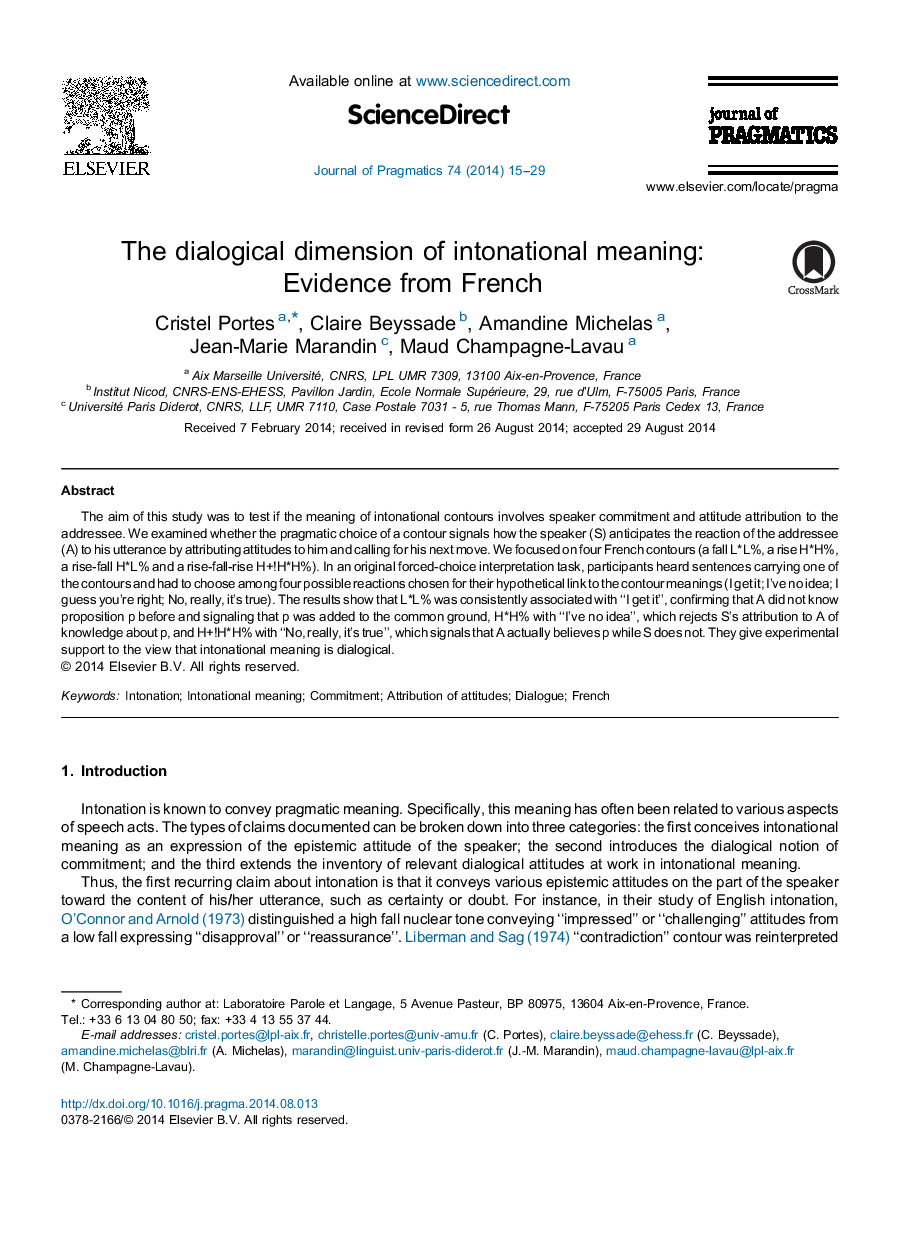| Article ID | Journal | Published Year | Pages | File Type |
|---|---|---|---|---|
| 932657 | Journal of Pragmatics | 2014 | 15 Pages |
•Intonational meaning is dialogical and relies on a collaborative activity.•Its components are speaker commitment, attitude attribution and call on addressee.•These components are analyzed in four contours of French intonation.•An original interpretation task is used to test the role of these components.•For three of the four contours, participants reliably choose the appropriate reaction.
The aim of this study was to test if the meaning of intonational contours involves speaker commitment and attitude attribution to the addressee. We examined whether the pragmatic choice of a contour signals how the speaker (S) anticipates the reaction of the addressee (A) to his utterance by attributing attitudes to him and calling for his next move. We focused on four French contours (a fall L*L%, a rise H*H%, a rise-fall H*L% and a rise-fall-rise H+!H*H%). In an original forced-choice interpretation task, participants heard sentences carrying one of the contours and had to choose among four possible reactions chosen for their hypothetical link to the contour meanings (I get it; I’ve no idea; I guess you’re right; No, really, it's true). The results show that L*L% was consistently associated with “I get it”, confirming that A did not know proposition p before and signaling that p was added to the common ground, H*H% with “I’ve no idea”, which rejects S's attribution to A of knowledge about p, and H+!H*H% with “No, really, it's true”, which signals that A actually believes p while S does not. They give experimental support to the view that intonational meaning is dialogical.
